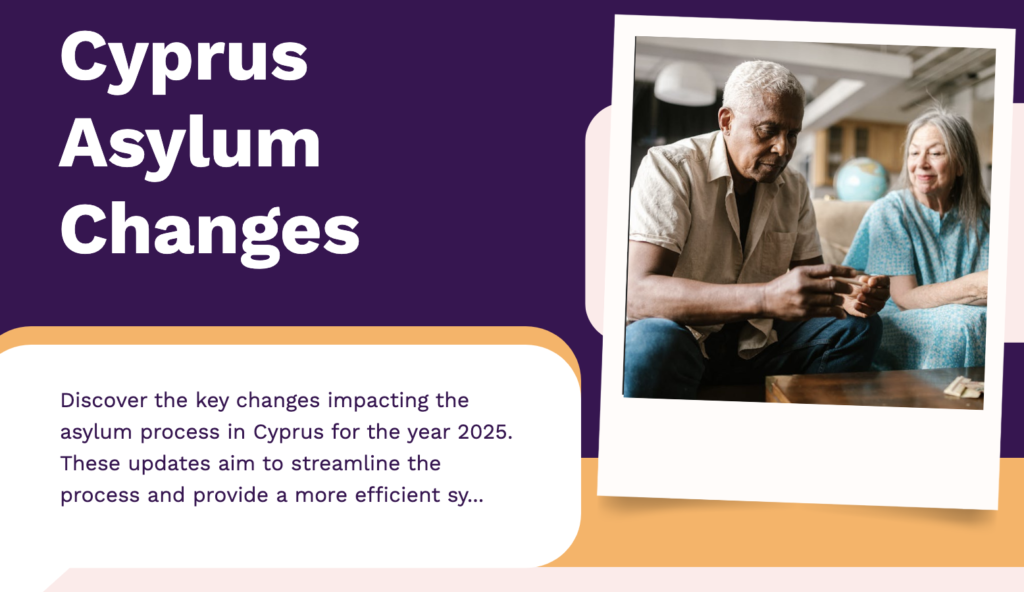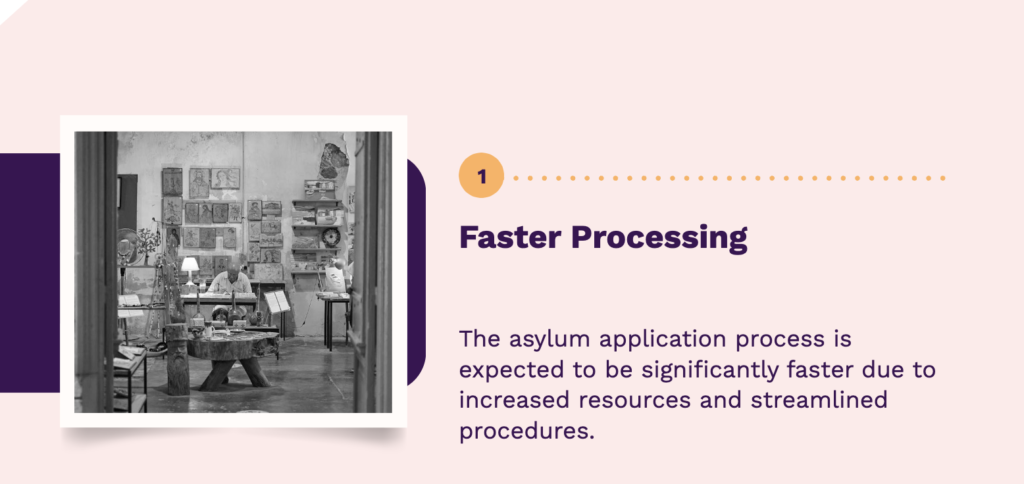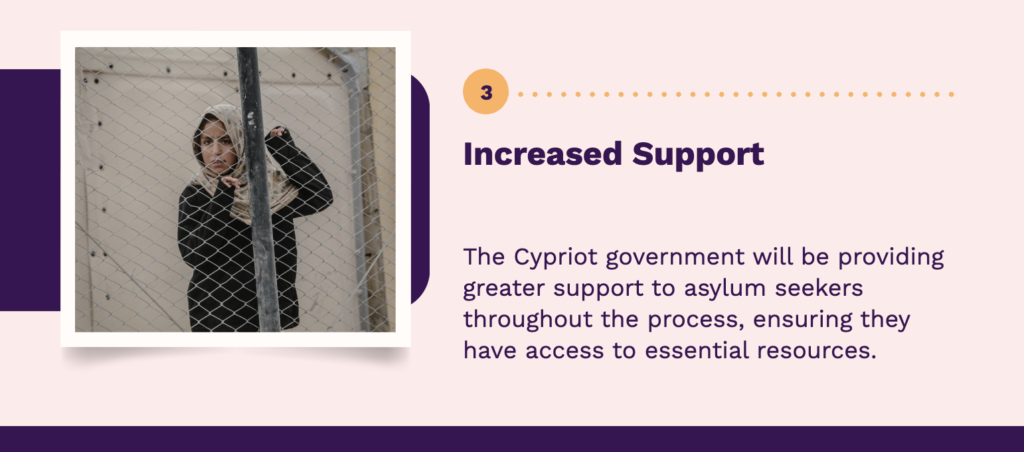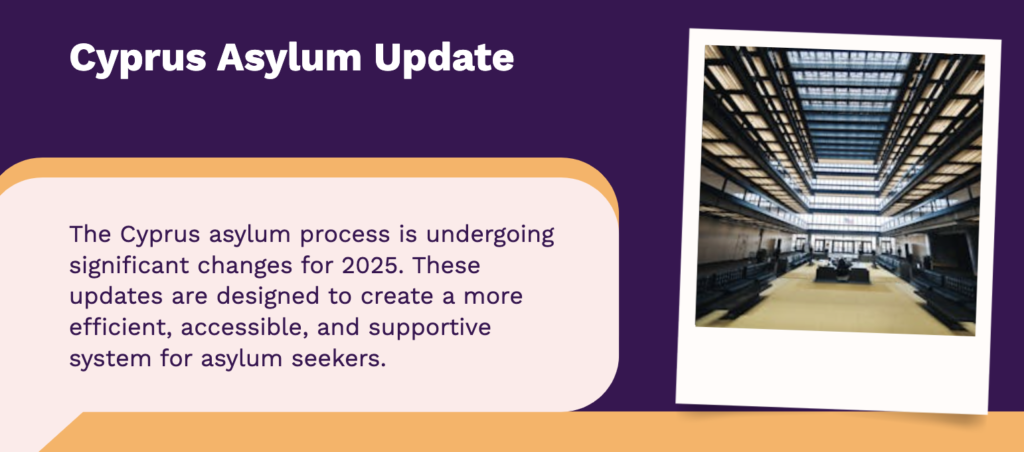Table of Contents
ToggleIntroduction to Cyprus Asylum Process 2025

As we move into 2025, the Cyprus Asylum Process is experiencing substantial transformations. Driven by both national interests and international standards, the evolving landscape aims to address the needs of those seeking refuge while maintaining regulatory compliance.
For individuals and organizations involved in asylum cases, staying abreast of these updates is crucial.
The alterations are designed to enhance both the efficiency and fairness of the system, providing better protection and resources for asylum seekers.
This year will bring changes in documentation, procedural steps, and timelines, impacting how applications are managed from start to finish.
Engaging with the updated process will require a proactive approach, given the new obligations and requirements set forth by the authorities.
As the system adapts to these shifts, the primary objective remains the same: to offer a safe haven for those in need, while ensuring that the application process is as transparent and streamlined as possible.
Understanding the intricacies of these changes is essential for navigating the Cyprus Asylum Process successfully.
Key Changes in Asylum Regulations in Cyprus

The recent amendments in asylum laws have introduced significant updates to the Cyprus Asylum Process. Designed to align with European Union standards, these changes aim to improve both the efficiency and fairness of the system. A key update is the enhancement of rights for asylum seekers, ensuring better protection and access to necessary resources.
New regulations also place additional responsibilities on applicants, mandating active engagement with the process and strict adherence to updated documentation requirements.
A pivotal change is the adoption of new, more rigorous criteria for assessing asylum claims.
This involves a thorough review of all submitted documents and a more detailed evaluation of the applicant’s background.
Applicants must now provide comprehensive evidence to support their claims, including any relevant identification papers and travel history.
Failure to meet these requirements may result in delays or rejection of the application.
Moreover, the procedural steps have been revised to create a more transparent process. This includes clear guidelines on the registration and submission of asylum applications, aiming to reduce ambiguities and prevent bureaucratic delays. Authorities are also introducing stricter deadlines for each stage of the process, intending to expedite decision-making and minimize waiting times for applicants.
The new regulations have also introduced enhanced support mechanisms. Governmental and non-governmental organizations are now more actively involved in providing assistance to asylum seekers, from legal aid to psychological support.
These measures are designed to help applicants navigate the complex asylum process more effectively.
Additionally, there are now more defined avenues for appeal in cases where asylum claims are denied, giving applicants a fair chance to contest unfavorable decisions.
This ensures that the asylum process is not only efficient but also just and humane.
Application Procedures and Requirements

Applicants must promptly register their intention to seek asylum upon arrival in Cyprus to avoid delays. The registration process has been streamlined to ensure efficiency, emphasizing the importance of timely and accurate submission of documents.
Required documents include identification papers, travel history, and supporting evidence for the asylum claim. It’s essential to gather these documents carefully, as incomplete or inaccurate information can lead to rejections or extended processing times.
Applicants should also be prepared to provide detailed accounts of their personal circumstances and reasons for seeking asylum. This information is critical for the assessment process and helps authorities understand the applicant’s situation. The new system places a stronger emphasis on thorough documentation and clear presentation of facts.
In addition to documentation, applicants may need to complete various forms and questionnaires that provide further insight into their case. These forms must be filled out meticulously, as any discrepancies or missing information could complicate the process.
Moreover, the procedural updates require that applicants remain actively engaged throughout the application process.
This includes attending scheduled interviews, responding promptly to any requests for additional information, and staying informed about the status of their application.
Failure to comply with these requirements can result in delays or adverse decisions.
Finally, applicants are encouraged to seek assistance from legal advisors or support organizations to ensure that their applications meet all necessary criteria and standards.
This professional guidance can be invaluable in navigating the complexities of the asylum process in Cyprus.
Interview Process and Timelines

The interview process in the Cyprus Asylum Process is designed to scrutinize the details of each application thoroughly. Applicants will participate in interviews conducted by trained officials, whose role is to evaluate the credibility and validity of the claims presented.
During these interviews, applicants should be prepared to discuss their personal history and the specific reasons for seeking asylum. This step is critical, as it significantly influences the final decision on the application.
Applicants must ensure they provide consistent and accurate information during the interview. Discrepancies between the interview statements and the submitted documents can lead to complications or delays. The updated process emphasizes clarity and coherence in the provided information, making it essential for applicants to be well-prepared.
The new regulations aim to streamline the timeline for processing applications, targeting a decision within six months. However, more complex cases may take longer.
The authorities have established stricter deadlines for each stage of the process to help minimize waiting periods.
Applicants are advised to stay informed about their application status and respond promptly to any requests from officials.
Being well-prepared for the interview, having all necessary documents, and understanding the new timelines can help applicants navigate this critical phase of the asylum process more efficiently.
Engaging with legal advisors or support organizations can also provide valuable assistance during the interview preparation.
Support Services for Asylum Seekers
Cyprus offers an array of services aimed at supporting asylum seekers throughout their journey. Various organizations, including both governmental and non-governmental entities, are actively involved in providing essential aid.
- Legal assistance is a key component, ensuring that applicants have access to professional advice and representation. This is crucial for navigating the often complex asylum procedures and for ensuring that applications meet all necessary legal standards.
- Language classes are another critical service, helping asylum seekers overcome communication barriers and better integrate into the local community. Mastery of the local language can significantly enhance their ability to understand and participate in the asylum process, as well as improve their overall quality of life.
- Psychological support is also available, recognizing the emotional and mental challenges that come with seeking asylum. Counseling services are designed to help individuals cope with stress and trauma, providing a much-needed support system.
- Additionally, various social services are offered to assist with day-to-day needs, such as housing, healthcare, and education. These services aim to provide a stable and supportive environment, helping asylum seekers focus on their applications and their future.
- Engaging with these support systems is highly encouraged, as they can significantly ease the transition and provide the resources necessary to effectively present an asylum case.
Potential Challenges and Solutions
Asylum seekers in Cyprus may face several challenges, including language barriers, legal complexities, and the emotional toll of the asylum process.
Language barriers can hinder communication with authorities and complicate understanding of the required procedures.
To overcome this, asylum seekers are encouraged to attend language classes provided by
various organizations, which can help bridge the communication gap.
Legal complexities can be daunting, making it difficult for applicants to navigate the intricate asylum laws and requirements.
Seeking assistance from legal advisors who specialize in asylum cases can provide clarity and ensure that applications are completed accurately and comprehensively.
The psychological toll of seeking asylum can also be significant. The stress and trauma associated with fleeing one’s home country can impact mental health. Counseling services are available to provide emotional support, helping individuals cope with these challenges.
Community networks and peer support groups offer additional resources and companionship, providing practical advice and emotional solidarity. Engaging with these networks can ease the process and foster a sense of community among asylum seekers.
By utilizing these solutions, asylum seekers can better navigate the complexities of the Cyprus Asylum Process and work towards a more stable future.
Conclusion and Future Outlook

The Cyprus Asylum Process in 2025 has undergone significant changes to improve efficiency and fairness. These updates align with international standards, enhancing protections and resources for asylum seekers. As the system evolves, the focus will remain on creating a streamlined and transparent process, minimizing delays and ensuring just decisions.
The introduction of new documentation requirements and procedural steps necessitates that applicants stay informed and actively engaged throughout the process. Support services, including legal assistance and psychological support, play a crucial role in helping applicants navigate these complexities.
Future developments are expected to continue improving integration efforts, assisting asylum seekers in becoming active members of Cypriot society. By leveraging available resources and support systems, individuals can better manage the challenges they face.
Remaining proactive and informed will be essential for those navigating the Cyprus Asylum Process, helping them achieve a secure and hopeful future.
My journey as an asylum seeker in Cyprus, particularly through the Pournara First Reception Centre, has been both challenging and enlightening.
Navigating a system fraught with uncertainty was never easy. The complexities of waiting, the emotional toll of an unknown future, and the strain of being in a liminal state were constant companions.
However, the solidarity among fellow asylum seekers became a vital source of strength, reminding me that we were not alone in this journey.
The Pournara Centre itself, while serving as an essential first step in the asylum process, reflects both the resilience and the shortcomings of the system.
There have been improvements over the years, but challenges persist, especially in the areas of timely processing, living conditions, and access to resources.
Despite these hurdles, the efforts of both governmental bodies and local organizations to better support asylum seekers in Cyprus are commendable.
But there remains much work to be done to ensure that the process is more humane, efficient, and transparent.
As I reflect on my own experience, it becomes clear that a more satisfactory asylum process in Cyprus must prioritize not just the efficient processing of applications but also the dignity and well-being of those seeking refuge.
Enhancements to infrastructure, better communication about the steps in the process, and greater access to legal aid are essential in creating a more supportive environment.
The future outlook for asylum seekers in Cyprus holds promise, as there is an increasing recognition of the need for reforms. With continued collaboration between governmental agencies, NGOs, and the asylum seeker community, Cyprus has the potential to become a model of a fair, compassionate, and efficient asylum system.
For those who follow in our footsteps, I hope that their journey is less fraught with uncertainty, filled instead with a clear path toward safety, stability, and the opportunity to rebuild their lives with dignity and hope.

